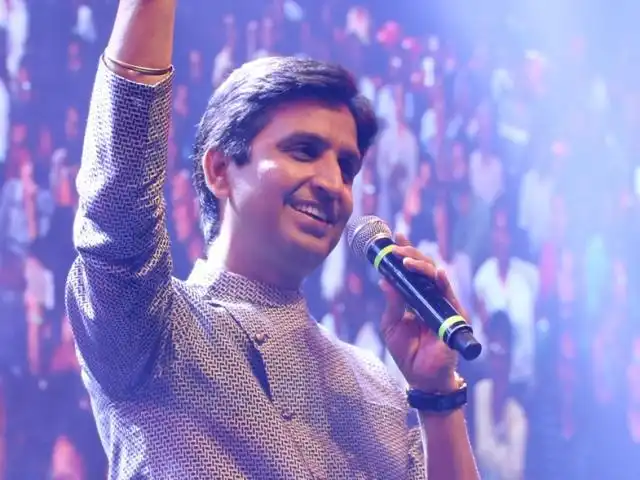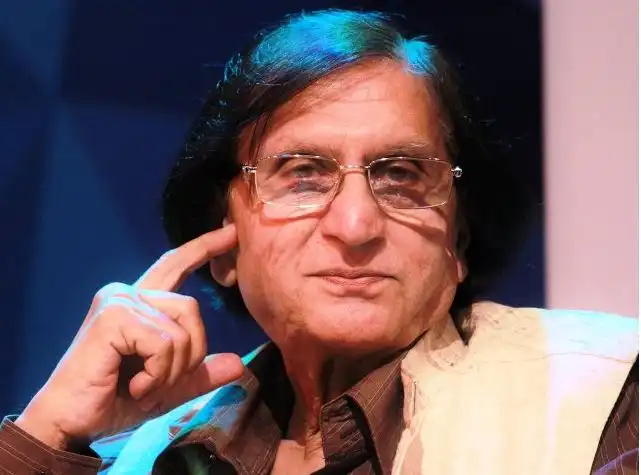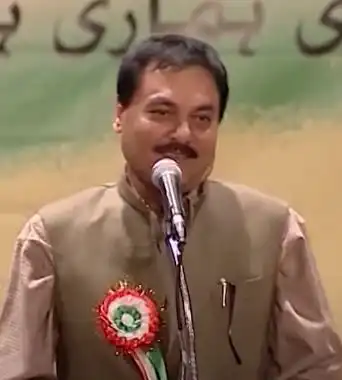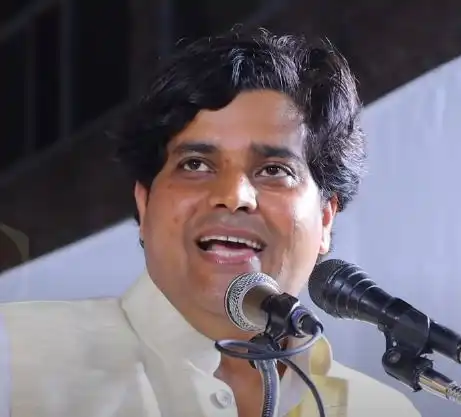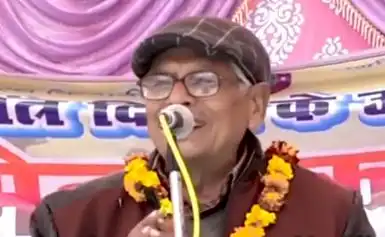![]()
SANJAY JHALA | AGE | POET | POEMS | KAVI | KAVI SAMMELAN | KI KAVITA | COMEDY

Sanjay Jhala is a highly regarded Indian poet renowned for his poignant and evocative poetry. He was born on May 1, 1972, in the vibrant city of Ahmedabad, Gujarat, India. During his childhood, Jhala‘s parents, both educators, instilled in him a love for literature, which had a profound influence on his literary journey.
SANJAY JHALA’s Background Information:

- As a teenager, Jhala started writing poetry as a means of expressing his emotions and thoughts. He quickly discovered his natural flair for writing poetry and began writing deeply personal poems about themes such as love, loss, and longing. His early works were heavily influenced by the great Indian poets, Rabindranath Tagore and Mirza Ghalib.
- After completing his education, Jhala embarked on a teaching career. However, his passion for poetry never dwindled, and he continued to write and publish his poems in various literary magazines and journals. In 2005, Jhala published his debut poetry collection, “Khwabgah,” which was highly praised by critics and positioned him as a rising star in Indian poetry.
- Jhala‘s poetry is known for its simplicity and sincerity, and his poems typically explore themes such as love, loss, and the human condition. His writing style is highly accessible, and his use of language is notable for its clarity and precision. Critics have praised Jhala‘s poetry as “intimate and profound.”
- Jhala has received numerous accolades for his poetry, including the esteemed Sahitya Akademi Award, which is one of the most prestigious honors for writers in India. He has also been awarded the Gujarat Sahitya Akademi Award and the Kavita Award for his contributions to Indian poetry.
- Aside from his poetry, Jhala is a highly respected literary critic and editor. He has edited several anthologies of Indian poetry, including “New Voices in Indian Poetry” and “Voices of the Present: Critical Essays on Contemporary Indian Poetry.” Jhala‘s critical writing is well-regarded for its depth and insight, and he is considered one of the foremost voices in Indian literature.
- Jhala is also a prominent figure in Indian literature festivals. He has participated in numerous festivals and has judged several poetry competitions. Jhala believes that literature has the power to unite people and create a more just and compassionate society.
- Despite his success, Jhala remains grounded and humble. He is passionate about mentoring young writers and believes that poetry can be a powerful tool for effecting social change.
SANJAY JHALA’S DATA TABLE:
| Information | Details |
| Full Name | Sanjay Jhala |
| Birthdate | May 1, 1972 |
| Birthplace | Ahmedabad, Gujarat, India |
| Occupation | Poet, Literary Critic, Editor |
| Famous Works | Khwabgah (2005), Voices of the Present |
| Awards and Honors | Sahitya Akademi Award, Gujarat Sahitya Akademi Award, Kavita Award |
| Literary Contributions | Anthologies of Indian poetry, critical essays on contemporary Indian poetry |
| Influences | Rabindranath Tagore, Mirza Ghalib |
SOME LESSER KNOW FACTS ABOUT “SANJAY JHALA”
- Sanjay Jhala is a polyglot who is fluent in several Indian languages, including Hindi, Gujarati, and Urdu. He has also translated poems from other languages, including English and Bengali.
- Jhala‘s literary career began as a translator. He translated the works of several Indian poets into Gujarati, including the poetry of Arun Kolatkar, a prominent Indian poet writing in English.
- Jhala is a vegetarian and has been a vocal advocate for animal rights. He has written several poems and essays on the subject, and he believes that literature can be a powerful tool for raising awareness about animal rights issues.
“CONCLUSION”
In summary, Sanjay Jhala is a celebrated Indian poet, critic, and editor who has made significant contributions to Indian literature. His poetry is widely recognized for its simplicity and sincerity, and his critical writing is regarded as some of the best in the field. Jhala‘s dedication to mentoring young writers and promoting literature as a means of social change underscores his profound love for the written word. Jhala‘s work continues to inspire readers and writers around the world, and his legacy is sure to endure for generations to come.

